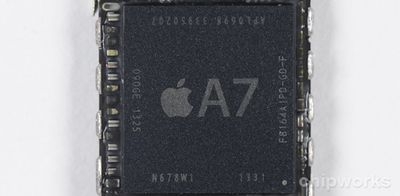A former Apple executive who worked on the chips that power iPhones and iPads has had a request to toss a breach-of-contract lawsuit brought by the company rejected by the court in a tentative ruling.

Last August, Apple sued its former A-series chip lead, Gerard Williams III, for breach of employment contract. Williams was the lead designer of Apple's custom iPhone and iPad chips from the A7 to A12X, before he departed the company in March 2019 to start his own chip company, Nuvia Inc, with two other former Apple chip executives.
Apple accuses him of breaching the contract because it barred him from planning or engaging in any business activities that are "competitive or directly related to Apple's business or products." Williams argues that a provision in the contract conflicts with a California law that allows workers to develop new businesses while they're employed elsewhere.
However, Bloomberg today reports that Santa Clara County Superior Court Judge Mark Pierce said the law doesn't permit an employee "to plan and prepare to create a competitive enterprise prior to termination if the employee does so on their employer's time and with the employer's resources."
The judge also dismissed a claim by Williams that Apple invaded his privacy by reviewing text messages he wrote to coworkers that were critical of the company. In one of the messages, Williams is said to have claimed that Apple would have "no choice but to purchase" his new company.
Williams sought to have those texts excluded as evidence in the suit. Pierce disagreed. "There are no allegations in the complaint establishing that the text messages were obtained as the result of eavesdropping upon or recording a confidential communication," he wrote.
The judge sided with Williams in dismissing Apple's bid for punitive damages, saying the company has failed to show how Williams intentionally tried to harm Apple by being disloyal.
Bloomberg notes that the tentative ruling regarding the California law doesn't address the merits of Apple’s claims, but it will allow the company to proceed with pretrial information-sharing if the judge decides to make it final.
Claude Stern, Williams' lawyer, said he would contest the judge's findings at a hearing in San Jose on Tuesday. He argues that Williams can't be sued for simply coming up with a new business idea while working at Apple, as opposed to taking inventions he worked on that belong to his previous employer.





















